The Barcelona Academy for Mediterranean Municipalities (BAMM) took place from October 15 to 18, 2024, organised by MedCities and the Barcelona City Council. This inaugural initiative aims to empower Mediterranean cities to enhance their resilience and sustainability in the face of climate change, which is affecting the region at a rate 20% faster than the global average.
The academy gathered 16 technical experts and mayors from ten cities: Amman, Antalya, Barcelona, Bethlehem, Benghazi, Irbid, Málaga, Sarajevo, Tétouan, Tripoli (Lebanon), and the non-Mediterranean city of Nouakchott. The focus of this first edition was on developing Green and Blue cities, structured into three major blocks: Policies and Initiatives for Urban Resilience, Planning Resilient Cities, and Efficient Urban Water Management, concluding with a peer-to-peer session.
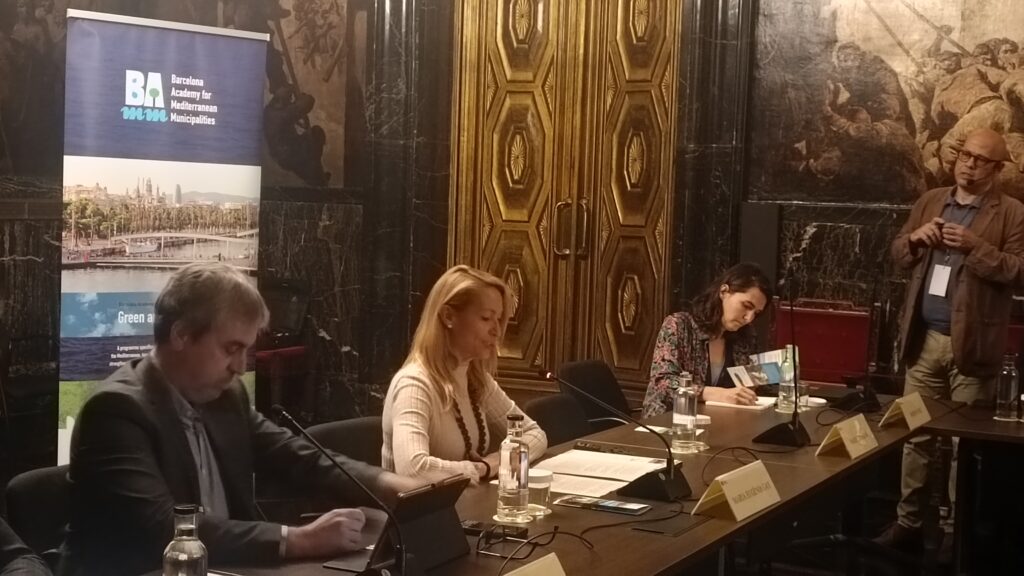
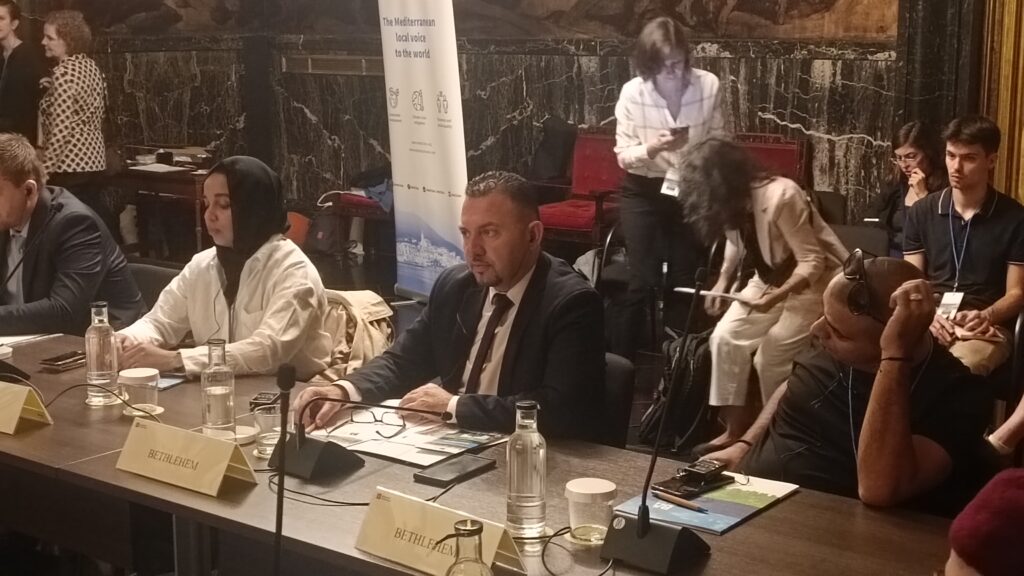
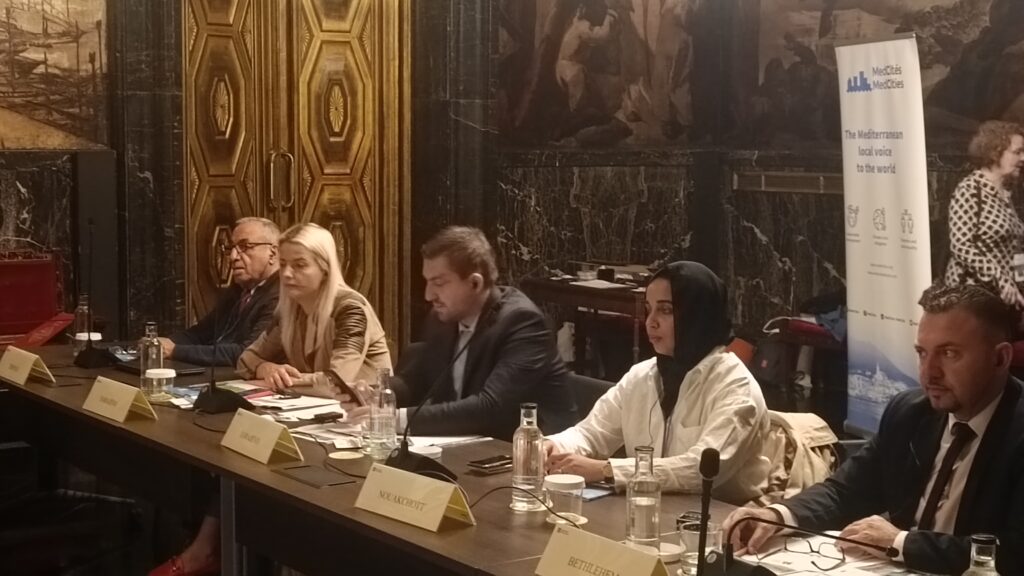
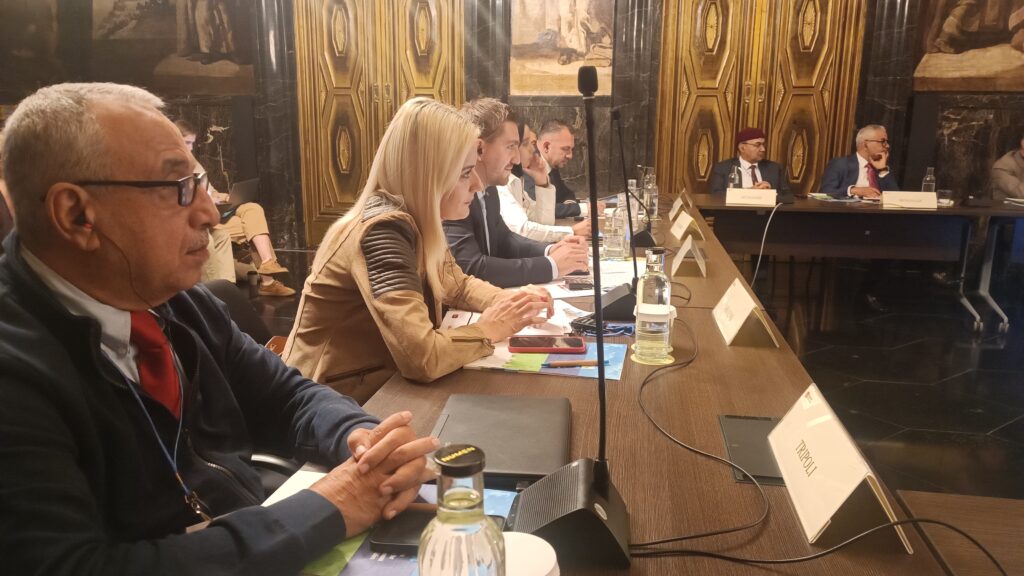
Participants presented the experiences, challenges, and best practices from their municipalities, creating a collaborative learning environment that enhanced the relevance of the sessions. The academy featured sessions led by experts from renowned organisations. The Centre de Recerca Ecològica i Aplicacions Forestals (CREAF) discussed the integration of urban forests and green corridors to mitigate climate impacts. The Institut Català de Recerca de l’Aigua (ICRA) focused on sustainable urban water management, addressing strategies for rainwater harvesting and flood prevention. ISGlobal highlighted the connections between urban planning and public health, emphasising the effects of urban environments on community well-being. The International Union for Conservation of Nature (IUCN) presented EU policies for promoting biodiversity in urban settings, while the Union for the Mediterranean (UfM) facilitated discussions on regional cooperation and policy alignment for urban resilience.
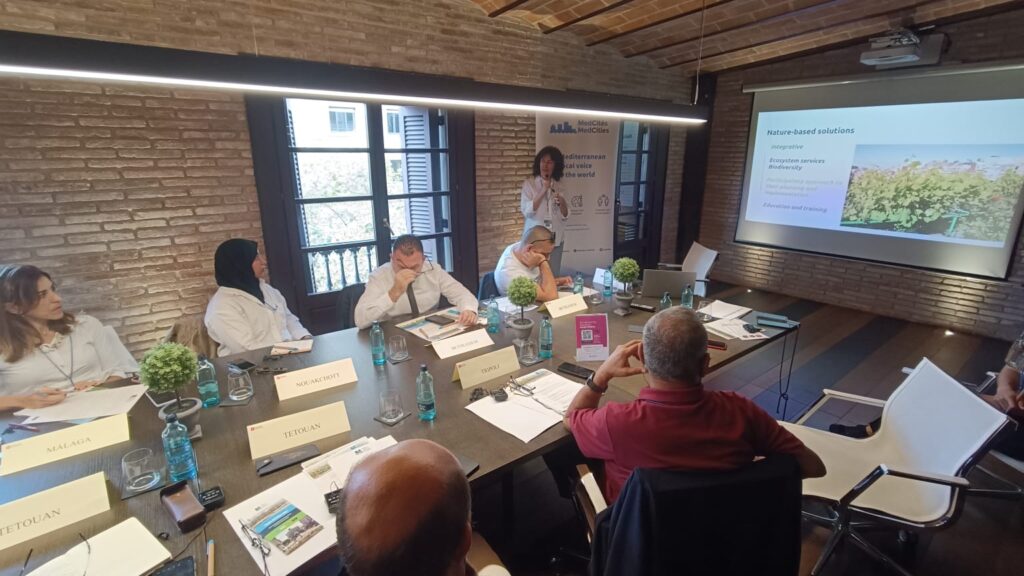
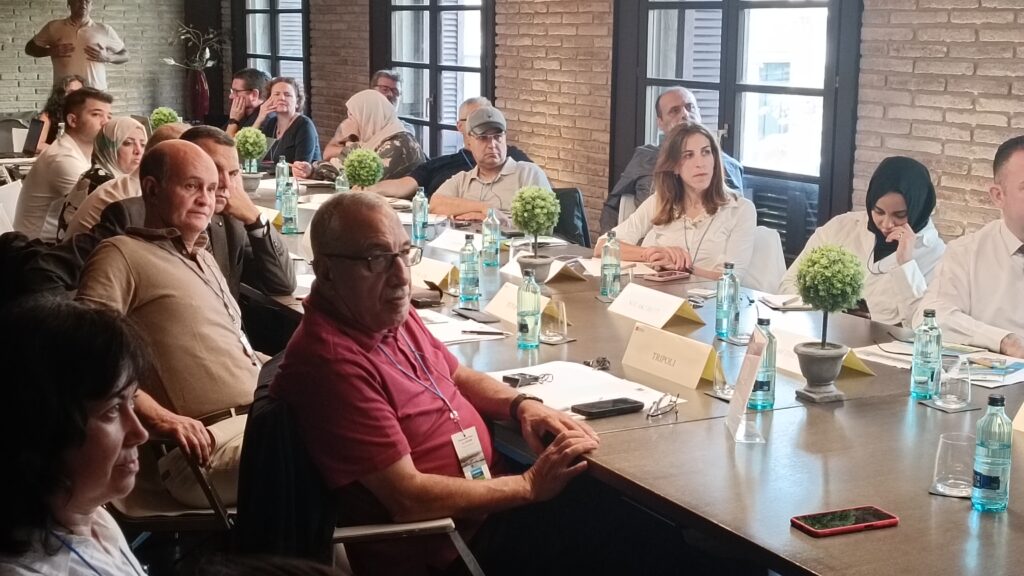
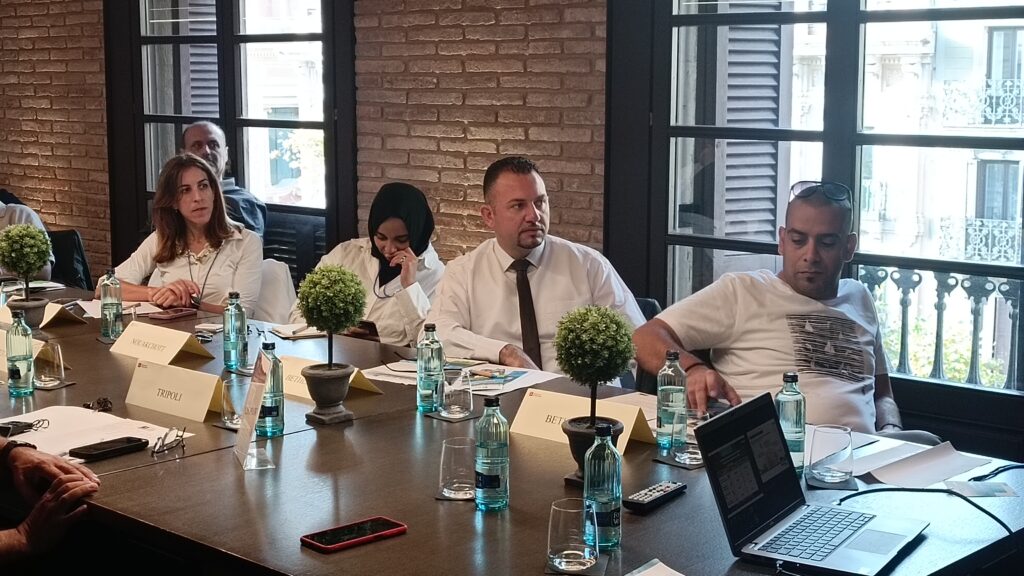
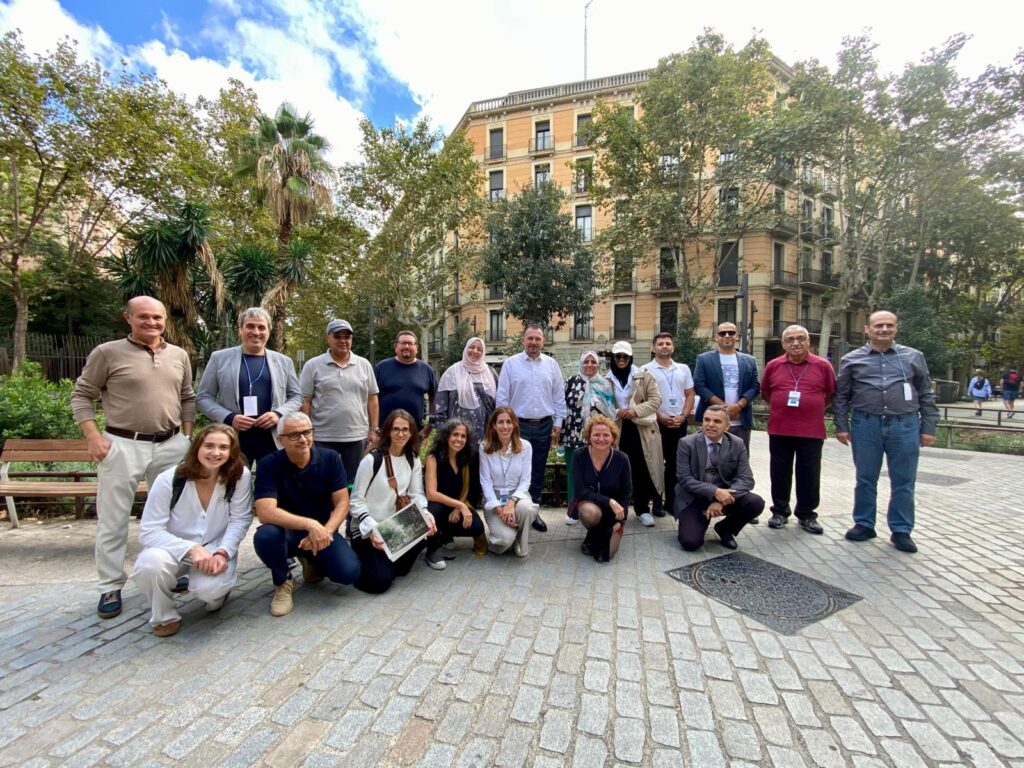
The academy’s format combined theoretical presentations, Q&A sessions, practical workshops, and technical visits. The theoretical sessions provided base knowledge on green and blue infrastructure while the workshop encouraged hands-on problem-solving, allowing participants to develop strategies tailored to their specific challenges.
Technical visits throughout Barcelona allowed participants to observe successful examples of nature-based solutions (NBS) in action, such as sustainable urban drainage systems (SUDS), green corridors, and innovative wastewater treatment and management practices. These visits offered practical insights into the implementation of these solutions in their cities.
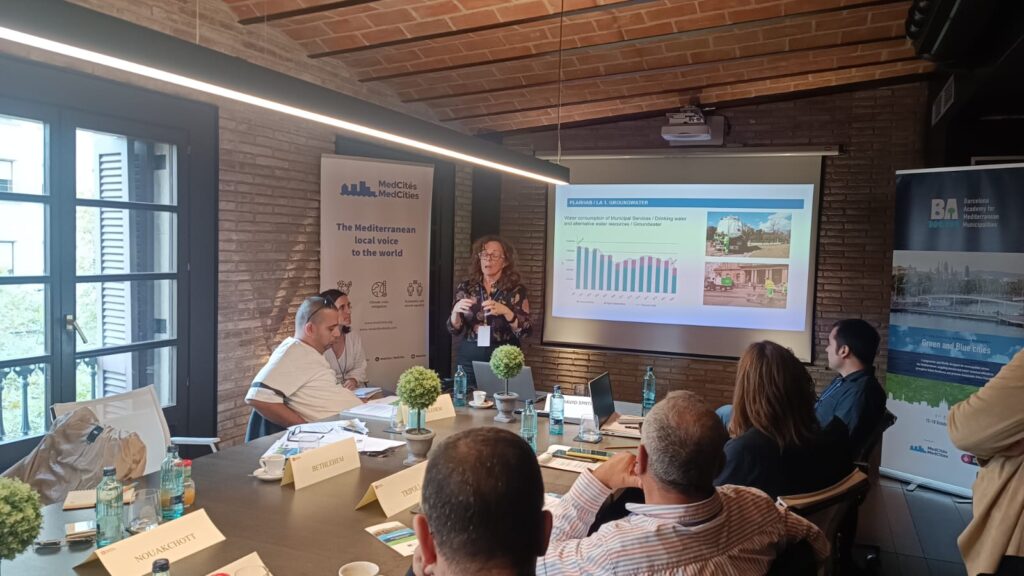

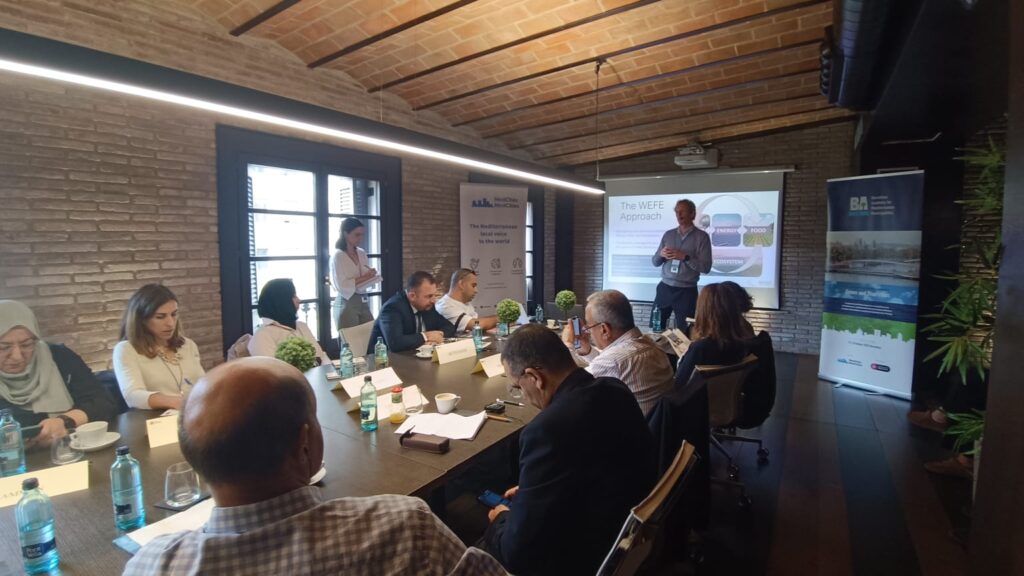
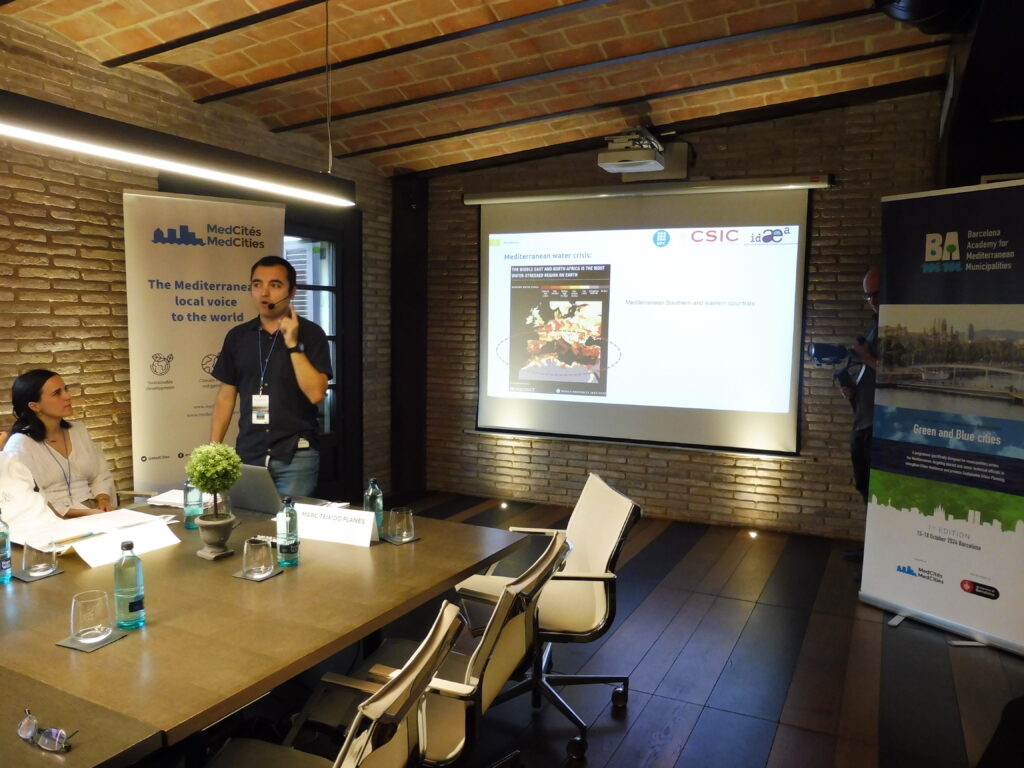
On the final day, the peer-to-peer session used Bethlehem as a case study for in-depth discussions and collaborative problem-solving. Participants examined the city’s unique challenges and worked together to design a vision for 2040, focusing on practical solutions to its climate issues. Bethlehem’s complex urban landscape, coupled with its UNESCO historical protection, provided a distinctive backdrop for discussing strategies to enhance green spaces, promote sustainable transportation, and improve water management. Proposals included increasing green spaces, implementing rainwater collection systems, and enhancing energy-efficient urban lighting, all aimed at bolstering the city’s resilience to climate change. This session highlighted the significance of local context in developing effective resilience strategies.
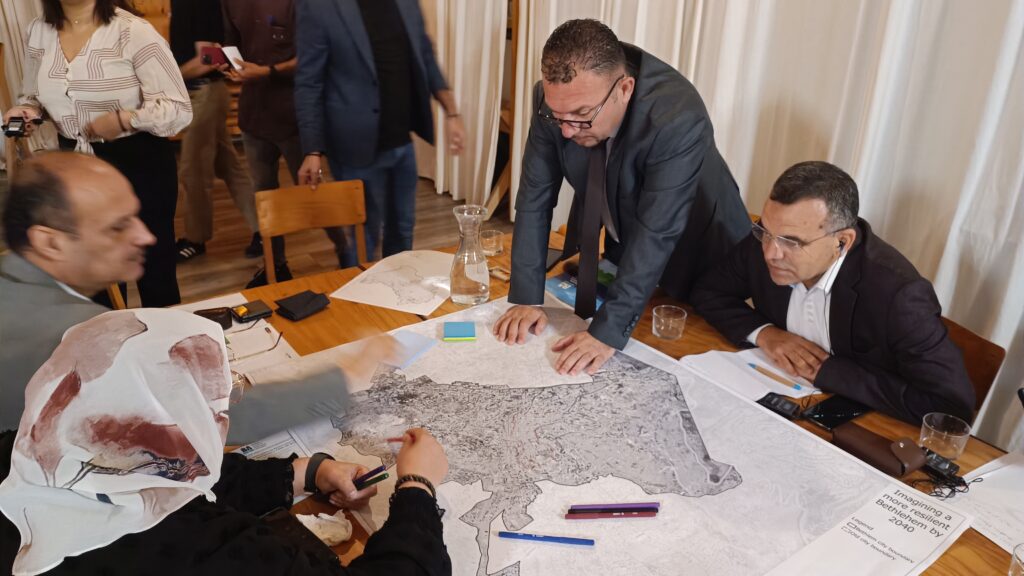
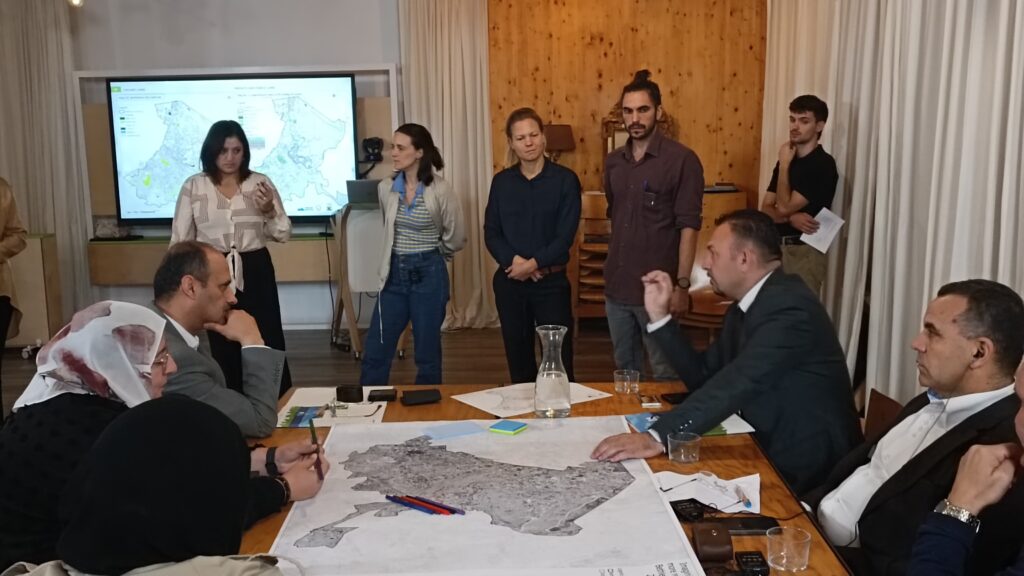
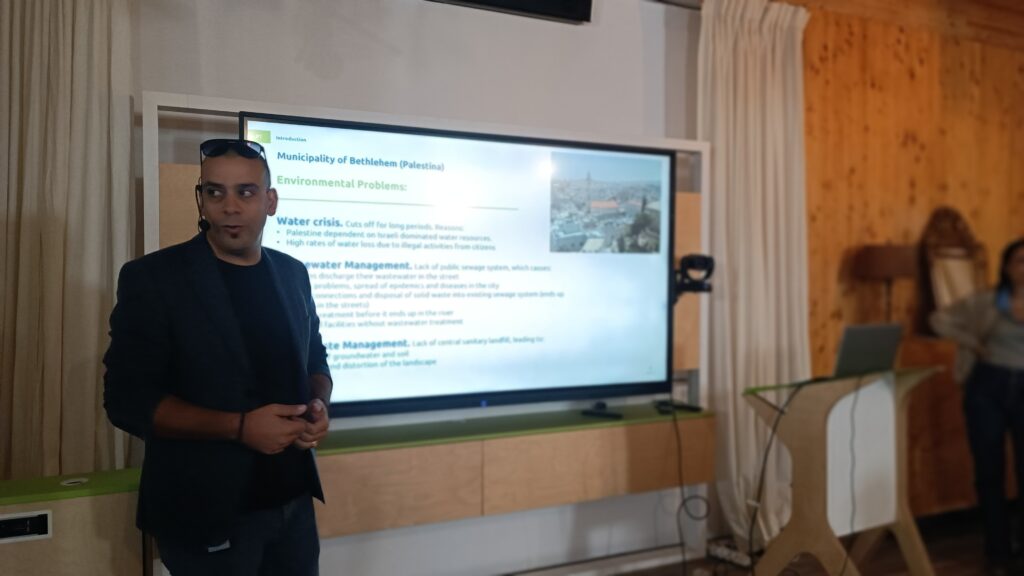

This inaugural edition of the BAMM academy established a strong foundation for future annual events tailored to the specific needs and challenges of participating cities, fostering ongoing collaboration, learning, and knowledge exchange among Mediterranean municipalities.
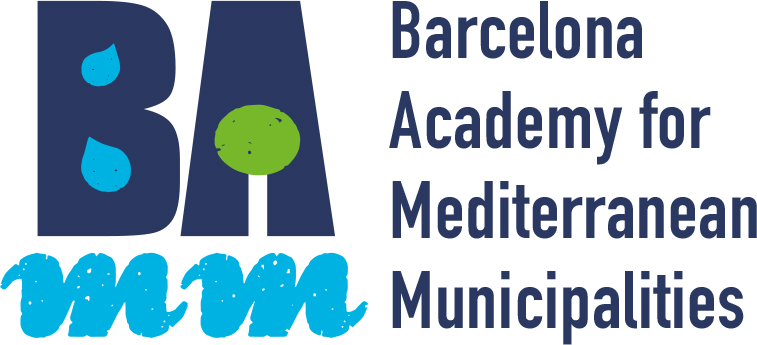
Subscribe to the monthly newsletter to receive the latest news.

Nam porttitor blandit accumsan. Ut vel dictum sem, a pretium dui. In malesuada enim in dolor euismod
Nam porttitor blandit accumsan. Ut vel dictum sem, a pretium dui. In malesuada enim in dolor euismod

Nam porttitor blandit accumsan. Ut vel dictum sem, a pretium dui. In malesuada enim in dolor euismod

Nam porttitor blandit accumsan. Ut vel dictum sem, a pretium dui. In malesuada enim in dolor euismod
Nam porttitor blandit accumsan. Ut vel dictum sem, a pretium dui. In malesuada enim in dolor euismod

Nam porttitor blandit accumsan. Ut vel dictum sem, a pretium dui. In malesuada enim in dolor euismod